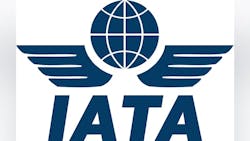IATA, Governments, and Industry Groups Urge Stronger Global Coordination on Aviation Climate Goals
The International Air Transport Association (IATA), joined by the governments of Japan and Malaysia and a broad coalition of aviation industry organizations, has issued a joint statement at COP30 calling for stronger global cooperation to advance aviation’s path to net zero carbon emissions by 2050.
The statement urges governments to reaffirm the International Civil Aviation Organization (ICAO) as the sector’s global authority for managing international aviation emissions. According to the signatories, only a unified framework can deliver effective climate progress, and fragmented national or regional measures risk slowing decarbonization efforts.
In particular, the group highlighted the need for robust global carbon markets to scale climate finance, an issue high on the COP agenda and central to the Baku to Belem Roadmap.
Willie Walsh, IATA’s Director General, said governments must focus on coordinated action: implementing ICAO’s Carbon Offsetting and Reduction Scheme for International Aviation (CORSIA), enabling Article 6 mechanisms under the Paris Agreement, and avoiding taxes or levies that divert resources from actual emissions-reduction investments.
Key points from the joint statement include:
• ICAO’s central role: The signatories reaffirm ICAO’s authority under the UNFCCC and Kyoto Protocol as the sole forum for regulating international aviation emissions and caution against duplicating mechanisms across global processes.
• Strengthening CORSIA: The group calls on all governments to fully implement CORSIA, noting that airlines are expected to purchase more than 200 million credits in the First Phase (2024–26), generating an estimated USD 4–5 billion in climate finance. CORSIA is projected to offset nearly 2 billion credits through 2035, supporting verified emissions-reduction projects—particularly in developing countries.
• Operationalizing Article 6: The statement urges host countries to activate Article 6, including issuing Letters of Authorization and enabling the release of CORSIA-eligible emissions units. This is seen as essential for mobilizing climate finance and supporting sustainable development.
• Taxes and levies: The signatories warn that ticket taxes and similar unilateral measures are not effective climate tools and may hinder connectivity while reducing available capital for emissions-reduction projects, disproportionately affecting developing nations and Small Island States.
Signatories of the joint statement include the governments of Japan and Malaysia, along with major industry groups such as:
• Airlines for Europe (A4E)
• Arab Air Carriers Organization (AACO)
• Airports Council International (ACI)
• Airlines International Representation in Europe (AIRE)
• Latin American and Caribbean Air Transport Association (ALTA)
• African Airlines Association (AASA)
• Association of South Pacific Airlines (ASPA)
• Air Transport Action Group (ATAG)
• European Regions Airline Association (ERA)
• International Business Aviation Council (IBAC)
• International Coordinating Council of Aerospace Industries Associations (ICCAIA)
• National Airlines Council of Canada (NACC)
• World Travel & Tourism Council (WTTC)
